According to information from the Organization for Economic Cooperation and Development (OECD), the results of the Teaching and Learning International Survey (TALIS) 2024 cycle have been officially announced, with the participation of 55 countries and territories. Vietnam is one of the countries named by the OECD at the announcement ceremony, recognized as a model in terms of survey participation rate and effectiveness.
The TALIS 2024 survey was developed by the OECD to provide internationally comparable evidence on secondary school teachers and principals, reflecting the characteristics, perspectives and professional experiences of teachers in the context of general education reform and digital transformation.
Continuing the 2018 cycle, Vietnam continues to participate with a nationally representative sample of 202 educational institutions in 58 provinces and cities, 202 principals and 4,410 teachers. The entire process is carried out on computers according to strict technical and security standards of the OECD, ensuring objective and reliable results.
The digital transformation capacity of Vietnamese teachers is a "bright spot"
TALIS 2024 results show that Vietnamese teachers have an average age of 42 years, lower than the OECD average of 45 years; 70% are female and 91% have long-term contracts. The Vietnamese teaching staff is assessed as young, enthusiastic, with increasingly good technological capacity and high levels of career satisfaction.
Notably, 92% of Vietnamese teachers believe that the teaching profession is respected by society – the highest rate among all countries surveyed (while the OECD average is only 22%). Along with that, 87% of teachers believe that their opinions are listened to and valued by policymakers, an increase of 8% compared to the 2018 cycle.
Job satisfaction is very high: 97% of teachers are satisfied with their job (compared to OECD: 89%), and only 3% of teachers under 30 intend to leave their jobs in the next 5 years (OECD: 20%). 58% of teachers are satisfied with their current salary – 19 percentage points higher than the OECD average and up 6% from 2018.
One of the notable highlights of TALIS 2024 is the digital transformation capacity of Vietnamese teachers. Up to 64% of teachers have used artificial intelligence (AI) in teaching, ranking 5th among participating countries and territories, higher than the OECD average (36%). However, 71% of teachers said that schools lack the necessary infrastructure and digital tools to apply AI, significantly higher than the OECD average (37%).
Among teachers who have not yet used AI in their teaching, 60% said they do not have enough knowledge and skills to apply this technology (OECD: 75%). This reflects the urgent need for training and fostering digital capacity for teachers in the context of strong digital transformation.

Support policies and working environment are focused on
According to the survey results, 95% of Vietnamese teachers found that professional development activities had a positive impact on their teaching (OECD: 55%). 96% of teacher educators rated their initial training program as high quality (OECD: 75%).
Levels of professional collaboration have also increased significantly: 69% of teachers participate in team teaching (a sharp increase from 2018), and 98% trust their colleagues and principal. In particular, 97% of teachers “agree” or “strongly agree” that the principal has a good professional relationship with staff (OECD: 86%).
According to the survey, only 4% of teachers teach in schools with more than 10% of students with special needs, but the majority of teachers said they are confident in adapting lessons to suit their students. In terms of welfare, support policies and working environment are being focused on, contributing to increasing commitment to the profession.
Vietnamese teachers’ levels of occupational stress are low: only 4% said their jobs were “very stressful,” although 54% admitted to feeling pressured by student performance and curriculum changes.
Policy recommendations from TALIS 2024 results
From the above results, the Ministry of Education and Training makes a number of important policy recommendations.
In particular, regarding the development of digital capacity and application of artificial intelligence for teachers, it is necessary to issue Digital Capacity Standards for Vietnamese teachers; invest in technology infrastructure and organize flexible, short-term training programs on educational technology and data security.
Promote inclusive education and support diverse students: Integrate special education and school psychology into teacher training; establish an interdisciplinary support network between teachers, school psychologists and school health professionals.
Strengthening the continuous professional development (CPD) system: Linking training with promotion and career path; building a fund to support professional training for teachers in disadvantaged areas; recognizing learning credits in various forms.
Promoting the role of academic leadership in schools: Building a model of "professional development school", increasing academic autonomy for key teachers, and fostering pedagogical leadership capacity for principals and core teachers.
Improve working conditions and professional benefits: Innovate salary policies based on capacity, reduce administrative burden, increase time for professional activities; provide spiritual support and housing for young teachers, especially in rural areas.
Effectively manage the educational reform process: Design a reform roadmap with impact assessment, avoid hasty changes; consult teachers before issuing new policies; build a unified educational data system to serve monitoring and feedback from the grassroots.
Towards a sustainable, learner-centered education system
The synchronous implementation of the above recommendations is expected to help improve the capacity and professionalism of Vietnamese teachers, increase job satisfaction and commitment, and strengthen social trust in education and the teaching profession. At the same time, this is an important step towards a flexible, lifelong learning and learner-centered education system.
The TALIS 2024 results confirm the positive position of Vietnamese teachers in the region, consistent with the achievements of Vietnamese students through the PISA 2022 and SEA-PLM 2024 programs. However, the report also emphasizes the urgent need for focused investment in digital competencies, professional development and change management in schools.
In the coming time, the Ministry of Education and Training will direct in-depth analysis of TALIS 2024 reports to serve policy development and adjustment, and synchronous implementation at the central and local levels, towards the goal of sustainable development of the Vietnamese education system in the 2025-2035 period.
Source: https://giaoducthoidai.vn/giao-vien-viet-nam-diem-sang-trong-khao-sat-quoc-te-talis-2024-post755592.html





![[Photo] Closing of the 14th Conference of the 13th Party Central Committee](https://vphoto.vietnam.vn/thumb/1200x675/vietnam/resource/IMAGE/2025/11/06/1762404919012_a1-bnd-5975-5183-jpg.webp)
![[Photo] Prime Minister Pham Minh Chinh receives the delegation of the Semiconductor Manufacturing International (SEMI)](https://vphoto.vietnam.vn/thumb/1200x675/vietnam/resource/IMAGE/2025/11/06/1762434628831_dsc-0219-jpg.webp)

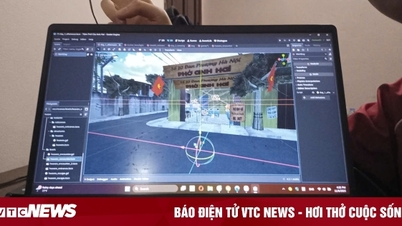



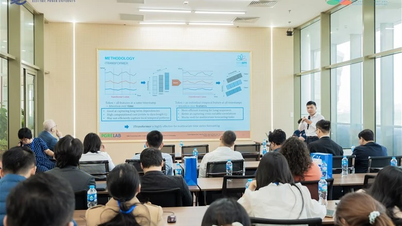
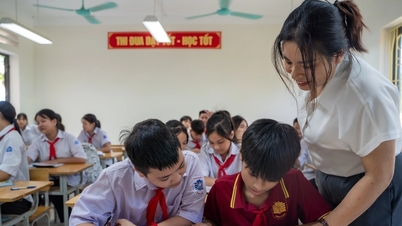

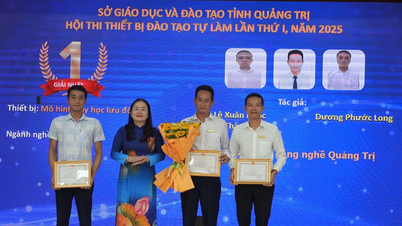






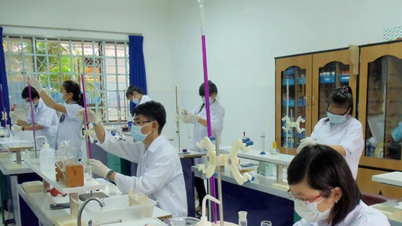









































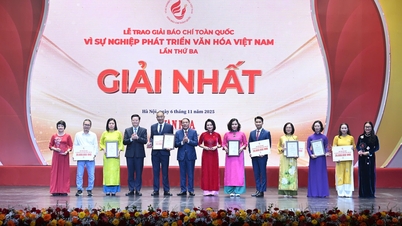




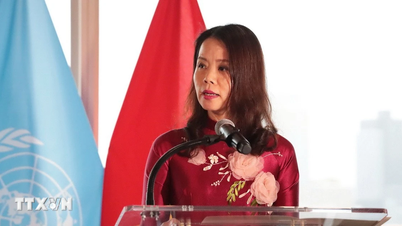














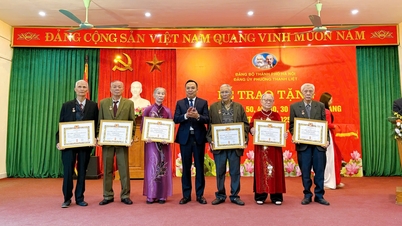




















Comment (0)